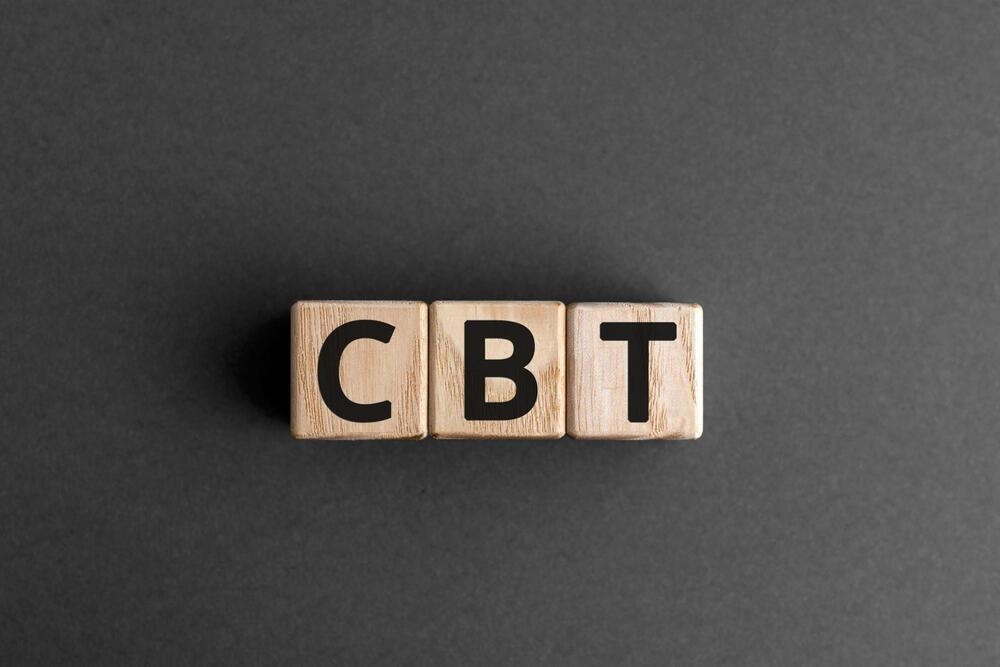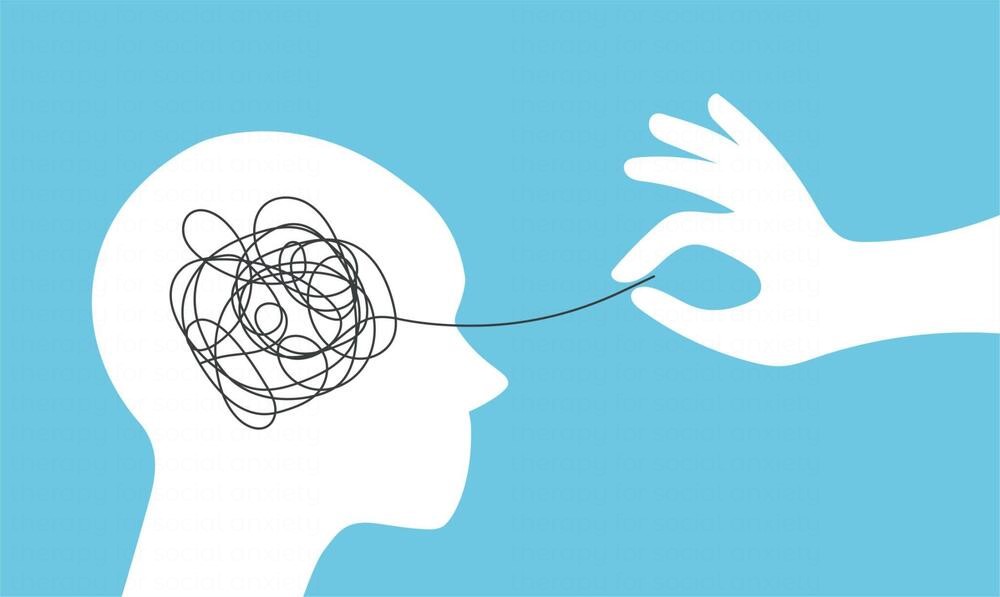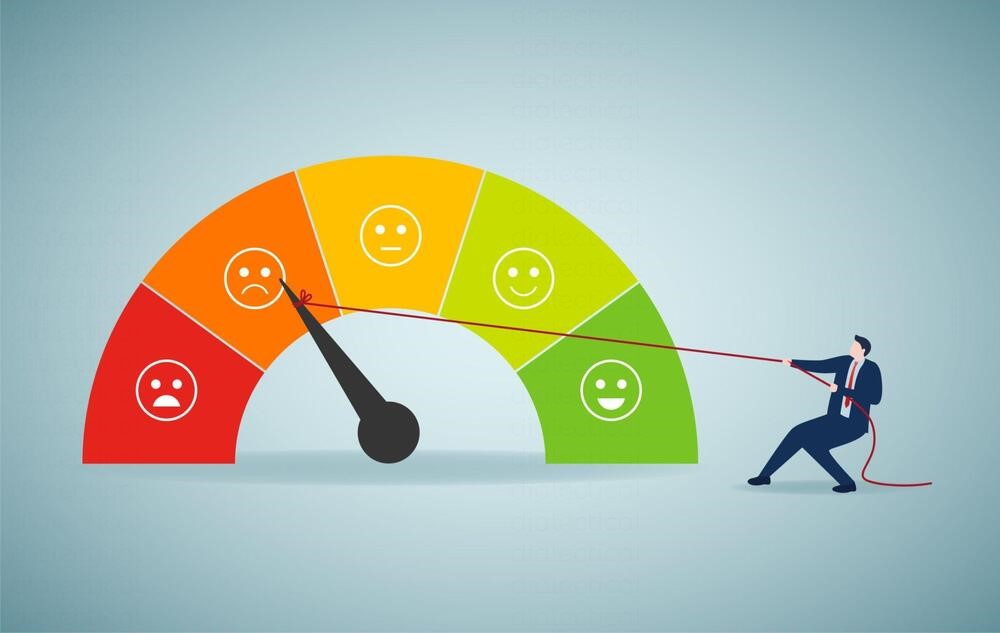- What is EMDR Group Therapy?
- How Does EMDR Group Therapy Work?
- Benefits of EMDR Group Therapy
- Common Questions About EMDR Group Therapy
- What to Expect During an EMDR Group Therapy Session
- The Potential Risks of EMDR Group Therapy
- Making the Most Out of an EMDR Group Therapy Session
- Eye Movement Desensitization and Reprocessing (EMDR) Group Therapy
- Common Techniques Used In EMDR Group Therapy Sessions
- Wrapping Up About EMDR Group Therapy
Are you looking for a group therapy that can help you process and overcome any emotional issues you may have? Then EMDR – Eye Movement Desensitization and Reprocessing – group therapy might be the perfect fit for you! EMDR is an evidence-based psychotherapy that has been proven to be effective in treating trauma, depression, anxiety, and more. It uses bilateral stimulation (eye movements, taps, tones) to help you reprocess memories and experiences to create new associations in your brain. This type of group therapy is especially helpful in treating PTSD because it allows you to re-experience the trauma but in a safe setting. Through EMDR group therapy, you will be guided by a trained therapist through a series of steps which will help you identify and work through any negative emotions or thought patterns that are preventing you from leading a healthy life.EMDR group therapy is a type of therapy that uses Eye Movement Desensitization and Reprocessing (EMDR) to help people process traumatic memories. In this therapy, individuals work with a group of other people who have experienced similar traumas, allowing them to gain insight into their own experiences and understand how to cope with them. During the therapy session, the group will discuss their experiences and then practice the EMDR technique, which involves moving their eyes in specific patterns while recalling the traumatic memory. This can help to reduce the emotional intensity of the memory, as well as help individuals gain a better understanding of how to cope with it in the future.
What is EMDR Group Therapy?
Eye Movement Desensitization and Reprocessing (EMDR) therapy is an integrative psychotherapy approach that has been proven to be effective in treating a wide range of psychological issues. It involves the use of eye movements, either in a one-on-one session or in a group setting. EMDR group therapy is an effective approach for those seeking to address trauma-related issues, such as post-traumatic stress disorder (PTSD), anxiety, depression, phobias, and other psychological disturbances. The goal of this type of therapy is to help individuals process their trauma and develop healthy coping skills to manage their symptoms.
How Does EMDR Group Therapy Work?
In EMDR group therapy sessions, participants are encouraged to share their experiences with the group and receive support from others. During the session, the therapist will guide participants through the process of desensitization and reprocessing using a variety of techniques. These techniques may include guided imagery, relaxation exercises, cognitive restructuring, and eye movement desensitization (EMD).
The goal of EMD is to help participants identify and process traumatic memories in order to reduce their distress levels. During this process, participants are asked to focus on specific memories while they move their eyes back and forth horizontally or vertically. As they do this exercise, they are also asked to focus on positive thoughts or affirmations that will help them reframe negative beliefs about themselves or their experiences.
Benefits of EMDR Group Therapy
EMDR group therapy can be particularly beneficial for those experiencing trauma-related issues as it offers a safe space for individuals to openly discuss their experiences with others who have experienced similar situations. This form of group therapy also allows individuals to learn healthy coping skills from one another while being supported by a qualified therapist who can provide guidance on how best to manage emotions. Additionally, because EMDR group therapy often takes place within a larger therapeutic setting, it provides an opportunity for members of the group to build meaningful connections with one another which can be beneficial in furthering healing and recovery efforts.
Other benefits include increased self-awareness as well as improved communication skills due to the nature of the therapy’s interactive elements; increased feelings of safety and trust; improved self-esteem; increased resilience; increased self-compassion; decreased feelings of depression; decreased feelings of anxiety; better sleep quality; and greater insight into unresolved issues that may have been causing distress previously. Therefore, because there are multiple people involved in each session, it allows for more ideas and perspectives which can lead to better problem solving skills overall.
Common Questions About EMDR Group Therapy
EMDR group therapy is becoming an increasingly popular form of treatment for people suffering from trauma, PTSD, and other mental health issues. This type of therapy is a combination of traditional talk therapy and Eye Movement Desensitization and Reprocessing (EMDR). It is designed to help individuals work through their trauma in a safe and supportive environment. In this article, we will answer some common questions about EMDR group therapy.
What Is EMDR Group Therapy?
EMDR group therapy is a specialized form of talk therapy that combines traditional talk therapy with EMDR to help individuals process traumatic memories and emotions in a supportive environment. Unlike individual EMDR sessions, which are typically one-on-one with the therapist, group EMDR sessions involve multiple people who are all working through their traumas together. The therapist facilitates the session by guiding the participants through different exercises designed to help them process their experiences.
What Are the Benefits of EMDR Group Therapy?
There are many benefits to participating in an EMDR group therapy session. First, it provides a safe space for individuals to share their experiences and feelings without feeling judged or shamed. It also allows participants to support each other as they work through their traumas, offering understanding and empathy that can be difficult to find elsewhere. Additionally, it can be an effective way to process traumatic memories as the group setting can provide a sense of security and safety that can make it easier for individuals to confront their fears and work through them in a healthy way.
Who Should Attend an EMDR Group Therapy Session?
EMDR group therapy sessions are typically open to anyone who has experienced trauma or PTSD or who has been diagnosed with a mental health disorder related to trauma or PTSD. The best way to determine if this type of therapy is right for you is to speak with your therapist or doctor about your particular situation and needs. They will be able to make an informed decision based on your unique circumstances.
How Do I Find an EMDR Group Therapy Session?
The best way to find an appropriate EMDR group therapy session is by speaking with your doctor or therapist about options available in your area. They may be able to recommend specific groups or counselors who specialize in this type of treatment. Additionally, you can search online for local groups that offer this type of treatment as well as ask around in your community for referrals from other people who have had success with this type of treatment.
What to Expect During an EMDR Group Therapy Session
Group EMDR therapy can be a powerful way to process traumatic memories and emotions. This type of therapy is growing in popularity, due to its effectiveness in helping people to move past difficult times. During an EMDR group session, you can expect the following:
• A safe and supportive environment: Group EMDR sessions are typically held in a safe and supportive space. The therapist will create a welcoming atmosphere, where all members feel comfortable expressing their thoughts and feelings.
• A structured format: Each group therapy session will have a structured format that includes guided discussion, relaxation techniques, eye movement desensitization and reprocessing (EMDR), and cognitive restructuring.
• Processing of traumatic memories: One of the main goals of group EMDR sessions is to process traumatic memories. The therapist will guide the group through the EMDR process, allowing them to safely explore their experiences with others who share similar experiences.
• Open dialogue: Group EMDR sessions provide an opportunity for open dialogue about emotions and experiences related to trauma. This allows members to connect with each other on a deeper level, as well as gain insight into their own healing process.
• Learning new coping skills: In addition to processing traumatic memories, group EMDR sessions provide an opportunity for members to learn new coping skills. These skills may include relaxation techniques, mindfulness practices, cognitive reframing tools, or other methods that can help members better manage difficult emotions or situations.
Group EMDR therapy has been proven effective for those struggling with trauma or PTSD. It provides a supportive space for members to explore difficult emotions and experiences while learning new coping skills that can help them on their journey towards healing and recovery.
Choosing an EMDR Group Therapist
When looking for the best EMDR group therapy, it’s important to take into account a few factors. First, ensure that the therapist is licensed and has completed the necessary training to use EMDR. It’s also important to find someone you can trust and feel comfortable with, as well as someone who is patient and understanding. Here are some tips that can help you make an informed decision when choosing an EMDR group therapist:
- Research each potential therapist: Look into their qualifications, experience, and certifications.
- Look for a therapist who specializes in EMDR: Find out if they have any additional training or experience with the technique.
- Check references: Ask friends or family members if they have had any positive experiences with particular therapists.
- Talk to potential therapists: Ask them questions about their approach and techniques, and get a feel for their personality.
- Consider comfort level: Make sure you feel comfortable enough to open up about your feelings and issues.
Once you’ve done your research and found a few potential therapists, it’s time to start talking to them. During your initial consultation, ask questions about their background and experience, as well as how they plan on using EMDR in your sessions. It’s also important to discuss what type of support they provide between sessions so you know what kind of guidance you’ll receive outside of the therapy room.
It can be difficult to find the right therapist for group therapy but it is possible with some careful research and consideration. Once you find a qualified EMDR group therapist who matches your needs, it can make all the difference in helping you heal from trauma or other issues.

The Potential Risks of EMDR Group Therapy
Eye Movement Desensitization and Reprocessing (EMDR) group therapy is an effective form of psychotherapy for treating trauma-related symptoms, such as post-traumatic stress disorder (PTSD). However, like any form of therapeutic intervention, there are potential risks associated with EMDR group therapy. These risks can include:
- Increased anxiety
- Difficulty processing and integrating memories
- Intensified emotional reactions to memories
- Re-traumatization or retriggering of traumatic memories
- Exposed or intrusive thoughts about the traumatic event
Group therapy is a powerful tool for healing, but it also carries with it the potential risk of increased anxiety. In EMDR group therapy, the therapist may ask participants to discuss their traumatic experiences in detail. For some individuals, this can be a triggering experience that leads to increased levels of anxiety and distress. Additionally, many individuals may find it difficult to integrate and process the memories they share in the session. This difficulty may lead some participants to feel overwhelmed or unable to make sense of their experiences.
Another potential risk associated with EMDR group therapy is intensified emotional reactions to memories. During the session, participants may experience intense emotions related to their traumatic experiences that they cannot control or manage on their own. This can lead to feelings of fear or helplessness and further complicate recovery from trauma.
In addition, there is a risk of re-traumatization or retriggering of traumatic memories in EMDR group therapy sessions. Participants may be exposed to reminders of their trauma through discussions with other members in the group or through images used during the session. This can lead to a resurgence of negative emotions related to their past experiences.
Therefore, some individuals may experience intrusive thoughts about their traumatic event after participating in an EMDR group therapy session. These intrusive thoughts could be particularly distressing for those who have already experienced significant trauma and are trying to move past it. As a result, individuals should be aware that these risks exist prior to engaging in EMDR group therapy so that they can take steps towards managing them if needed.
Making the Most Out of an EMDR Group Therapy Session
Engaging in Eye Movement Desensitization and Reprocessing (EMDR) group therapy can be a powerful experience. As a participant, it is important to make the most out of the session by being an active participant and engaging with the other members of the group. Here are some tips for getting the most out of your group EMDR session:
• Be Open: It is important to be open and honest about your experiences during the session. This will help you work through any difficult emotions or memories that come up during the course of your therapy. Be prepared to talk about your feelings and share them with other members of the group.
• Listen to Others: It is important to listen carefully to what other participants are sharing as it can provide valuable insight into their experiences. Listening also allows you to gain empathy from others in the group which can help you feel more connected and supported during your own healing process.
• Ask Questions: Don’t be afraid to ask questions if something isn’t clear or if you want more information on a particular topic. This will help ensure that you understand what is being discussed and that you are able to get as much out of the session as possible.
• Participate: Participating in activities during an EMDR group session can help you process your emotions in a supportive environment. Even if you don’t feel like talking, participating in activities with other members will help build trust within the group and provide a safe space for healing.
• Practice Self-Care: Taking time for self-care before, during, and after your EMDR session can make all the difference. Whether it’s taking a walk, meditating, journaling, or doing something else that helps relax your mind, taking time for yourself will ensure that you are able to make the most out of each session.
Following these tips can help ensure that you get the most out of each EMDR group therapy session. Remember that recovery takes time but engaging in this type of therapy can be incredibly beneficial when done correctly. With patience and dedication, EMDR group therapy can provide powerful results!
Eye Movement Desensitization and Reprocessing (EMDR) Group Therapy
EMDR group therapy is a type of psychotherapy that uses a combination of therapeutic techniques to help individuals process and overcome traumatic experiences. This type of therapy involves using eye movements, guided imagery, and other interventions to help individuals identify and resolve the negative emotions associated with past traumas. The goal is to reduce or eliminate the symptoms of PTSD, anxiety, depression, guilt, and shame that can arise from unresolved trauma. EMDR group therapy can be used as a standalone intervention or in conjunction with other forms of psychotherapy.
Key Elements Of An EMDR Group Therapy Session
An EMDR group therapy session typically consists of several key elements including: introduction/orientation; assessment/preparation; reprocessing; and closure/debriefing. During the introduction phase, the therapist will explain the purpose of the session and provide information about what will take place during the session. The assessment phase involves assessing the individual’s level of distress when discussing the traumatic event(s) as well as identifying any areas that need further exploration. During this stage, the therapist may use various therapeutic techniques such as cognitive reframing or relaxation exercises to help individuals better manage their feelings.
The Reprocessing Phase
The reprocessing phase is when the therapist will use eye movement desensitization and reprocessing (EMDR) therapy techniques such as bilateral stimulation (eye movements), tapping, or tones to help individuals process their emotions related to past traumas. These techniques are used to help individuals gain insight into their emotional reactions to traumatic events in order to reduce distress and gain control over memories related to those events. This phase also involves discussing any insights gained during processing in order for an individual to gain a better understanding of how they experienced trauma and develop new coping strategies for managing future difficult situations.
Closure/Debriefing
The final stage involves closing out the session by providing feedback on progress made during the session and any goals set for future sessions. This stage also offers an opportunity for individuals to discuss any concerns they have regarding upcoming sessions or other issues related to their recovery process. At this point, therapists may also provide additional resources such as books or referrals for further support if needed.
Common Techniques Used In EMDR Group Therapy Sessions
Common techniques used in EMDR group therapy sessions include: cognitive reframing; relaxation exercises; guided imagery; exposure-based interventions; journaling; coping skills training; psychoeducation about trauma-related conditions such as PTSD; communication skills training; psycho-spiritual exploration; art/music/drama therapy activities; role plays; mindfulness practices such as meditation or yoga; somatic experiencing practices such as body scans or breathing exercises. Each technique is tailored according to individual needs and preferences in order for participants to gain insight into their experience with trauma while developing new skills for managing difficult emotions associated with it.

Wrapping Up About EMDR Group Therapy
EMDR Group Therapy is a powerful tool for addressing trauma and other mental health issues. It can be used to help people process difficult memories, manage strong emotions, and build resiliency skills in a safe and supportive group setting. It can provide an invaluable opportunity to build trust, create meaningful connections, and experience feelings of empowerment.
It’s important to remember that EMDR Group Therapy is not a one-size-fits-all approach, and it is important to find an experienced practitioner who can tailor the approach to the individual needs of the group. Additionally, it is essential that all members of the group are committed to their own healing journey in order for the therapy to be successful.
Overall, EMDR Group Therapy offers a unique opportunity for individuals in need of mental health support to find healing through connection with others. By engaging in this type of therapy, individuals can gain insight into their struggles and work towards creating lasting change that will empower them throughout their life.
EMDR Group Therapy provides a powerful platform for growth and healing from trauma or other distressing events in life. Through this process individuals have an opportunity to share their stories with others who understand what they are going through and offer support as they go through this journey together. This type of therapy can be incredibly rewarding for both those receiving treatment as well as those offering it.




